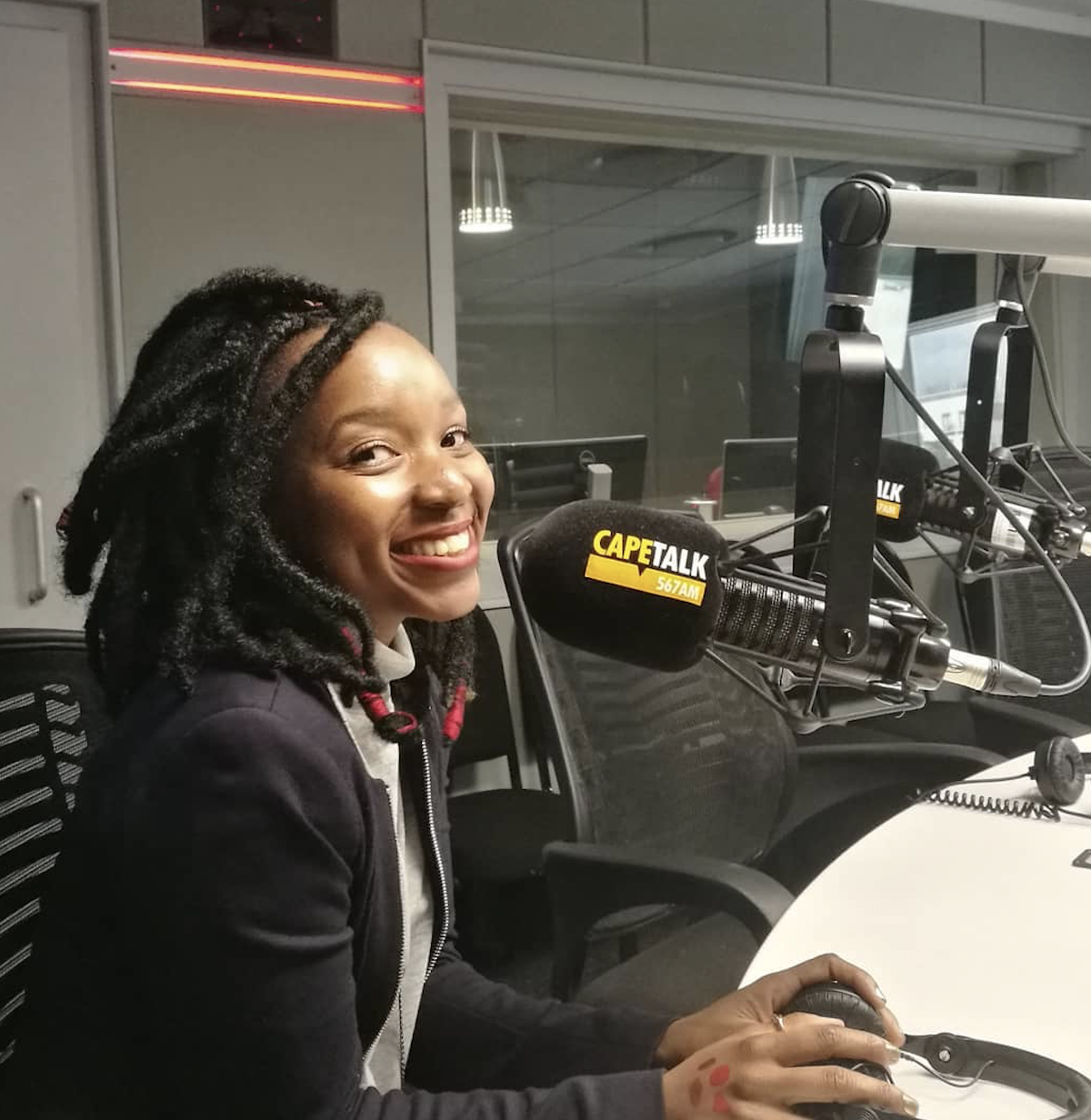
Nosipho Dumisa is a pioneer. She is one of the few black female directors making a name for themselves in the South African film and television industry. Her debut feature film, Nommer 37, was praised by many reviews for being one of South Africans’ ‘world class’ films. It’s a crime-thriller set in the Cape Flats with “tension and crazy twists that still delves into societal issues that people sometimes want to forget exist,” says Nosipho. It is also a project she is “incredibly proud of”, one which had her jetting off to Texas when Nommer 37 was chosen as the first fully South African production and first feature film – in more than 10 years – to receive a world premiere at this year’s SXSW (South by Southwest) film festival. Receiving the news was a moment she’ll never forget.
“I remember a flood of emotions rushing over me all at once when I received that email. I was having my morning coffee, whilst still on holiday back in my parents’ home in Margate, KZN. I screamed like a lunatic whilst praising Jesus and my poor mother had to stand there helplessly, until I explained that our prayers had been answered,” says Nosipho.
By the age of 29, Nosipho had accomplished a lot in an industry that often says ‘no’ to women of colour, working as a production manager and insert director on magazine programs, films, countless commercials, corporate videos while working as a writer and as an entrepreneur.

In 2009 after graduating from AFDA with a BA degree in Motion Picture Medium, she and a group of friends who shared same passion as hers had a vision to change the face of original content generators in the film and television industry in South Africa and the world. With this vision, they founded Gambit Films which is based in Cape Town, where she heads the company’s Commercials department and oversees the research and development of all potential Gambit projects.
Despite her success, Nosipho never envisioned herself as a director, not because she didn’t believe she could do it, but because she’d never seen women, or women of colour, doing what she now does. “It’s important that we see people who look and sound like us achieving on public platforms. Representation matters,” she said.
The arts were also not a celebrated career path in her Zulu family. “I honestly believed that I would be a doctor. I actually even took all the sciences in high school, got the marks I needed and would have gone ahead and studied medicine had fate not intervened,” she said.
Nosipho remembers how her drama teacher, Anita Schonauer entered her life when she was in grade 10 and took interest in her passion. “She started an after-school program where me and some other kids, who are now in the industry, would take drama lessons but would also take trips to Johannesburg to visit film schools and professional sets. She would bring people from the industry to our school to talk to us and gradually, our minds were opened and we began to dream about a different life,” said Nosipho.
By the time she left high school, Nosipho was determined to be an actress. She applied to a film school performance course because she thought she would end up being an actress since it was what she seen women in film and TV be. Little did she know that it was this path that would lead her to her dream.
She said she is lucky because her job is her passion. “Often, the work days don’t feel like work,” she says. But there are challenges, especially in the local film industry, such as time and money constraints. “The budgets we work with are ludicrous compared to the ambitions we have for our films, and yet we have to find a way.” But her biggest challenge was believing in her vision for Nommer 37 even when it seemed impossible.
As a ‘champion for diversity in storytelling’, Nosipho is also part of the young crowd shaking up the local film industry that are inspired by the new wave of filmmakers coming out of South Africa and especially out of Cape Town. She sees herself writing, producing and directing films and television shows on an international level whilst also telling local stories.
As Nosipho continues to make a name for herself in the film industry, we’re excited to see what she will achieve. She’s sure to be a role model for many young black women who want to make it in this tough yet exciting line of work.
And of course, she inspires her.
Read more about our Women’s Economic and Social Advancement programme










 The Trust supports and mobilises civil society networks on issues of ending child marriage, ending violence against children, ending female genital mutilation and promoting children’s rights, to carry out advocacy and action across Africa. Special focus is placed on Malawi, Mozambique, Tanzania and Zambia where child marriage continues to be a problem largely driven by poverty, gender inequality, harmful traditional practices, conflict, low levels of literacy, limited opportunities for girls and weak or non-existent protective and preventive legal frameworks.
The Trust supports and mobilises civil society networks on issues of ending child marriage, ending violence against children, ending female genital mutilation and promoting children’s rights, to carry out advocacy and action across Africa. Special focus is placed on Malawi, Mozambique, Tanzania and Zambia where child marriage continues to be a problem largely driven by poverty, gender inequality, harmful traditional practices, conflict, low levels of literacy, limited opportunities for girls and weak or non-existent protective and preventive legal frameworks.




 Education is a fundamental right for all children, which is also a vehicle for social, economic and political transformation in communities, countries and the African continent at large. Recent studies indicate a lack of progress in some of the critical commitments aimed at improving education quality, access, retention and achievement, particularly for girls. In most African countries, girls may face barriers to learning, especially when they reach post-primary levels of education. By implementing multi-dimensional approaches to education which includes core education, personal development, life skills and economic competencies, the Trust partners with funding partners, governments, civil societies and the private sector to improve education access.
Education is a fundamental right for all children, which is also a vehicle for social, economic and political transformation in communities, countries and the African continent at large. Recent studies indicate a lack of progress in some of the critical commitments aimed at improving education quality, access, retention and achievement, particularly for girls. In most African countries, girls may face barriers to learning, especially when they reach post-primary levels of education. By implementing multi-dimensional approaches to education which includes core education, personal development, life skills and economic competencies, the Trust partners with funding partners, governments, civil societies and the private sector to improve education access.

 The Nutrition and Reproductive, Maternal, New-born, Child and Adolescent Health and Nutrition, (RMNCAH+N) of the Children’s Rights and Development Programme aims at promoting the Global Strategy for women, children and adolescents’ health within the Sustainable Development Goals (SDG) agenda. The strategy emphasises on the importance of effective country leadership as a common factor across countries making progress in improving the health of women, children and adolescents.
The Nutrition and Reproductive, Maternal, New-born, Child and Adolescent Health and Nutrition, (RMNCAH+N) of the Children’s Rights and Development Programme aims at promoting the Global Strategy for women, children and adolescents’ health within the Sustainable Development Goals (SDG) agenda. The strategy emphasises on the importance of effective country leadership as a common factor across countries making progress in improving the health of women, children and adolescents. Through its Early Childhood Development (ECD) plan, The Trust will seek to put into action the new science and evidence Report that was presented by Lancet Series on Good and early development – the right of every child. This will be achieved by mobilising like-minded partners to contribute in the new science and evidence to reach all young children with ECD. The Trust’s goal is to be a catalyst for doing things differently, in particular, to rid fragmentation and lack of coordination across ECD sectors. In response to evidence showing the importance of political will in turning the tide against the current poor access and quality of ECD. Even before conception, starting with a mother’s health and social economic conditions, the early years of a child’s life form a fundamental foundation that determines whether a child will survive and thrive optimally.
Through its Early Childhood Development (ECD) plan, The Trust will seek to put into action the new science and evidence Report that was presented by Lancet Series on Good and early development – the right of every child. This will be achieved by mobilising like-minded partners to contribute in the new science and evidence to reach all young children with ECD. The Trust’s goal is to be a catalyst for doing things differently, in particular, to rid fragmentation and lack of coordination across ECD sectors. In response to evidence showing the importance of political will in turning the tide against the current poor access and quality of ECD. Even before conception, starting with a mother’s health and social economic conditions, the early years of a child’s life form a fundamental foundation that determines whether a child will survive and thrive optimally.